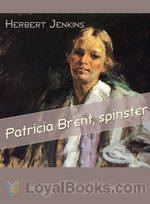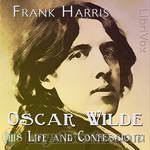|
Books Should Be Free Loyal Books Free Public Domain Audiobooks & eBook Downloads |
|
|
Books Should Be Free Loyal Books Free Public Domain Audiobooks & eBook Downloads |
|
Top Authors |
|---|
|
Book type:
Sort by:
|
By: Randall Garrett (1927-1987) | |
|---|---|
 Unwise Child
Unwise Child
When a super-robot named Snookums discovers how to build his own superbombs, it becomes obvious that Earth is by no means the safest place for him to be. And so Dr. Fitzhugh, his designer, and Leda Crannon, a child psychologist acting as Snookums’ nursemaid, agree to set up Operation Brainchild, a plan to transport the robot to a far distant planet. But the space ship becomes the scene of some frightening events--the medical officer is murdered, and Snookums appears to be the culprit… | |
 ...After a Few Words...
...After a Few Words...
| |
 Psichopath
Psichopath
| |
 Belly Laugh
Belly Laugh
| |
 Thin Edge
Thin Edge
| |
 Fifty Per Cent Prophet
Fifty Per Cent Prophet
| |
 The Eyes Have It
The Eyes Have It
| |
 Cum Grano Salis
Cum Grano Salis
| |
 That Sweet Little Old Lady
That Sweet Little Old Lady
Randall Garrett had this story first published in Astounding Science Fiction September and October of 1959. His twisted sense of humor and gift for the bizarre situation with believable characters shines here. In the not too distant future, Ken Malone, young but promising FBI agent , is given the most important and difficult assignment of his career: find a spy who is stealing information from the Ultra Top Absolute Secret project to develop a non-rocket space ship at Yucca Flats Labs in Nevada. But this is not a normal spy, this spy laughs at the FBI and all attempts to find him or her because they use an unknown new method to steal the information directly from the minds of the scientists. | |
 The Bramble Bush
The Bramble Bush
| |
 Hail to the Chief
Hail to the Chief
| |
 Occasion for Disaster
Occasion for Disaster
| |
 ...Or Your Money Back
...Or Your Money Back
| |
 What The Left Hand Was Doing
What The Left Hand Was Doing
| |
 By Proxy
By Proxy
| |
 Suite Mentale
Suite Mentale
| |
 The Measure of a Man
The Measure of a Man
| |
 Dead Giveaway
Dead Giveaway
| |
 Hanging by a Thread
Hanging by a Thread
| |
 In Case of Fire
In Case of Fire
| |
 The Unnecessary Man
The Unnecessary Man
| |
 Heist Job on Thizar
Heist Job on Thizar
| |
 The Asses of Balaam
The Asses of Balaam
| |
 Anything You Can Do!
Anything You Can Do!
An alien crash lands on Earth, and for ten years terrorizes the planet, hiding, periodically killing and eating people and stealing materials for some unknown purpose. The only hope is Bart Stanton, a medically-engineered superman, designed for the sole purpose of confronting the “Nipe”. | |
 Time Fuze
Time Fuze
| |
 Out Like a Light
Out Like a Light
| |
 The Foreign Hand Tie
The Foreign Hand Tie
| |
 A World by the Tale
A World by the Tale
| |
 Viewpoint
Viewpoint
| |
 Instant of Decision
Instant of Decision
| |
By: Herbert Jenkins (1876-1923) | |
|---|---|
 Patricia Brent, spinster
Patricia Brent, spinster
A romantic comedy, written in 1918, but with a modern feel to it. Patricia Brent one day overhears two fellow-boarders pitying her because she “never has a nice young man to take her out”. In a thoughtless moment of anger she announces that the following night she will be dining out with her fiance. When she arrives at the restaurant the next day, she finds some of the fellow-boarders there to watch her, so, rendered reckless by the thought of the humiliation of being found out, she goes up to a young man sitting alone at a table, and asks him to help her by “playing up”. Countless complications and adventures ensue… | |
By: Isabella L. Bird (1831-1904) | |
|---|---|
 A Lady's Life in the Rocky Mountains
A Lady's Life in the Rocky Mountains
Isabella Bird began travelling while in her early twenties to help alleviate illness that had plagued her since childhood. She was a single woman in her early forties when she made her treck through the Rocky Mountains. A Lady’s Life in the Rocky Mountains details this fascinating account of her travels through a series of letters written to her sister, Henrietta. These letters are filled with beautiful, vivid descriptions of the scenery, the people she encountered, the way of life, and a mountain man named Jim Nugent, that was as rough as they come, but a complete gentleman with Ms... | |
By: Jeanne Marie Bouvier de la Motte Guyon | |
|---|---|
 Autobiography of Madame Guyon
Autobiography of Madame Guyon
Jeanne-Marie Bouvier de la Motte-Guyon (commonly known as Madame Guyon) (April 13, 1648 – June 9, 1717) was a French mystic and one of the key advocates of Quietism. Quietism was considered heretical by the Roman Catholic Church, and she was imprisoned from 1695 to 1703 after publishing a book on the topic, A Short and Easy Method of Prayer. This translation is by Thomas Taylor Allen was first published in 1897. Allen’s dates are unknown. | |
 A Short and Easy Method of Prayer
A Short and Easy Method of Prayer
Originally published in 1685, Madame Guyon’s A Short and Easy Method of Prayer is considered a classic of Christian mysticism, influencing great writers and speakers such as John Wesley and Charles Spurgeon. In it, Madame Guyon carefully and briefly sets out her ‘unmethodical method’ by which any and all can commune with God at any time and under any circumstances. | |
 Spiritual Torrents
Spiritual Torrents
| |
 Letters of Madam Guyon
Letters of Madam Guyon
| |
By: William W.Denslow (1856-1915) | |
|---|---|
 Denslow's Three Bears
Denslow's Three Bears
This version of the classic tale of the three bears has a heroine named Golden Hair. The jolly bears, instead of chasing her away from their home, come to live with her at Grandmother’s house. The recording can be enjoyed by itself, or you can read along. | |
By: Sir Henry Morton Stanley (1841-1904) | |
|---|---|
 How I Found Livingstone
How I Found Livingstone
Sir Henry Morton Stanley is famously quoted for saying “Dr Livingstone, i Presume?”. Born in Wales, he migrated over to the United States at the age of 18, and eventually became an overseas correspondent for the New York Herald. In 1869 Stanley was told by James Gordon Bennett Jr to find Livingstone, a scottish missionary and explorer, who was lost in central Africa. When Stanley commented on the cost Bennett’s reply was: “Well, I will tell you what you will do. Draw a thousand pounds now; and when you have gone through that, draw another thousand, and when that is spent, draw another thousand, and when you have finished that, draw another thousand, and so on; but, FIND LIVINGSTONE. | |
By: Frank Harris | |
|---|---|
 Oscar Wilde: His Life and Confessions
Oscar Wilde: His Life and Confessions
Consumers of biography are familiar with the division between memoirs of the living or recently dead written by those who “knew” the subject more or less intimately, and the more objective or scholarly accounts produced by later generations.In the case of Wilde, as presented to us by Frank Harris, we are in a way doubly estranged from the subject. We meet with Oscar the charismatic talker, whose tone of voice can never be reproduced – even if a more scrupulous biographer had set down his words accurately – and we are perhaps already aware of him as Wilde the self-destructive celebrity who uneasily fills the place of the premier gay icon and martyr in our contemporary view... | |
 The Man Shakespeare
The Man Shakespeare
| |
 Oscar Wilde, His Life and Confessions — Volume 1
Oscar Wilde, His Life and Confessions — Volume 1
| |
 Elder Conklin and Other Stories
Elder Conklin and Other Stories
| |
 Eatin' Crow; and The Best Man In Garotte
Eatin' Crow; and The Best Man In Garotte
| |
 A Modern Idyll
A Modern Idyll
| |
 The Sheriff And His Partner
The Sheriff And His Partner
| |
 Gulmore, The Boss
Gulmore, The Boss
| |
 Elder Conklin
Elder Conklin
| |
By: Edith Howes (1872-1954) | |
|---|---|
 Wonderwings and other Fairy Stories
Wonderwings and other Fairy Stories
A collection of three short stories about fairies, complete with good moral lessons (as every fairy tale should be). | |
By: St. George Stock (b. 1850) | |
|---|---|
 Stoicism
Stoicism
This short book is part of the Philosophies Ancient and Modern series, which attempts to make Western philosophy more accessible to the general public. In this volume, George Stock provides a concise primer on Stoicism, the ancient philosophy that maintained that the universe is governed entirely by fate, and that humans can achieve happiness only by cultivating a calm acceptance of the vicissitudes of life. Among the Stoics of the Greek and Roman world were its founder, Zeno, the former slave Epictetus, and the Roman emperor Marcus Aurelius... | |
By: Edward Ormondroyd | |
|---|---|
 David and the Phoenix
David and the Phoenix
David knew that one should be prepared for anything when one climbs a mountain, but he never dreamed what he would find that June morning on the mountain ledge. There stood an enormous bird, with a head like an eagle, a neck like a swan, and a scarlet crest. The most astonishing thing was that the bird had an open book on the ground and was reading from it! This was David’s first sight of the fabulous Phoenix and the beginning of a pleasant and profitable partnership. The Phoenix found a great... | |
By: J. M. Barrie (1860-1937) | |
|---|---|
 Echoes of the War
Echoes of the War
Short stories with dramatic parts about civilian life in London during the First World War. Some humorous moments. By the author of "Peter Pan". | |
 Little White Bird
Little White Bird
"A children's book, sharp social commentary and sad psychological thriller about a man's search for a sense of belonging. All in one amazing and lyrical collection. This is the first book in which Peter Pan starts to appear. His adventure in Kensington Gardens are first narrated here. Other than that, it offers a magical portrait of contemporary London, and a realistic tale of a family to which every one of us could have belonged." | |
 My Lady Nicotine A Study in Smoke
My Lady Nicotine A Study in Smoke
| |
 Courage
Courage
| |
 What Every Woman Knows
What Every Woman Knows
| |
 Dear Brutus
Dear Brutus
At a house in the country 8 guests are invited to enter a magical wood to see what might have happened had they made a different choice in life. Even though they are warned away from the wood, they take a chance and enter. The title comes from Shakespeare: "The fault lies in our selves, dear Brutus, not in our stars...," and summarizes the theme of this play: given a second chance, will people still make the same mistakes? | |